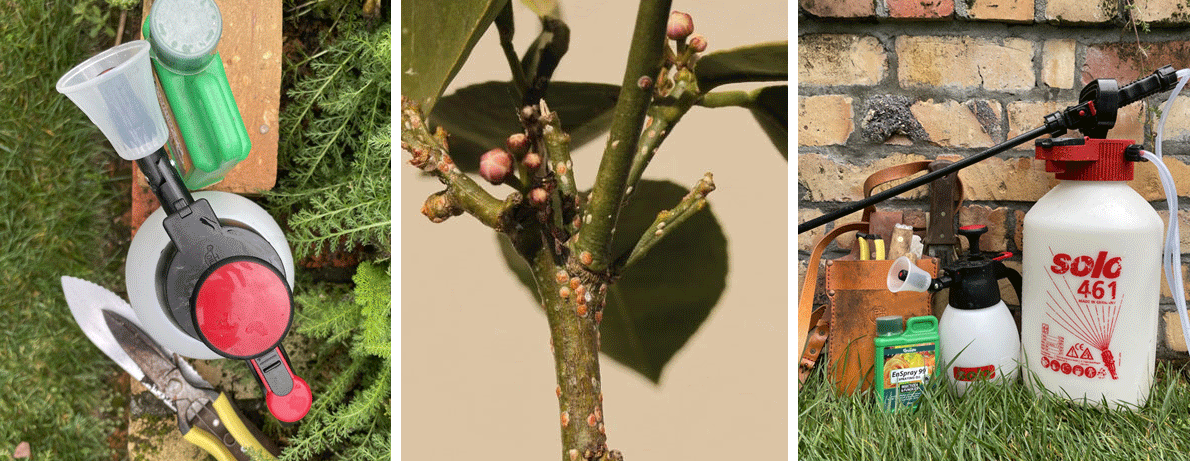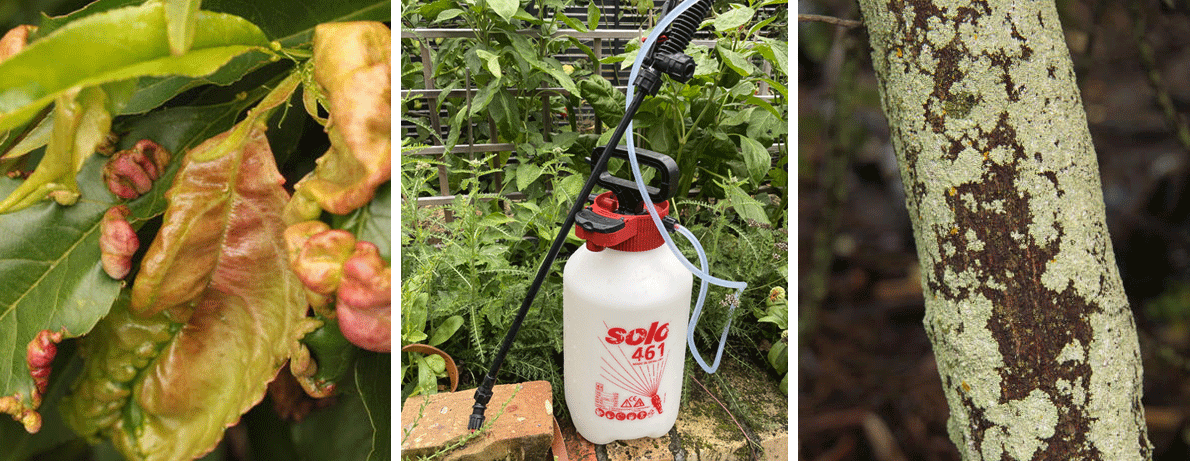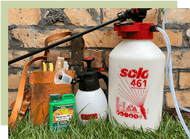Posted by Kelly Jean Reyland
11th Jun 2024
A guide to winter clean up sprays in the garden

Winter is the ideal time to carry out a clean sweep, and get on top of any lingering insects or fungal spores from the previous growing season.
They can hide in cracks, in plain sight on the stems or in the fallen leaves around the base of the plant. They go dormant, waiting for warmer weather and the chance to make a comeback next spring.
Start with the basics: Collect the fallen leaves from around the base of any plant affected by fungal disease or insect during the growing season. Spores and eggs can remain on leaves so if you get rid of these, part of the battle is already won. Ensure that you throw them in the bin or burn them. You don’t want to put them in the compost bin. Home compost rarely gets hot enough to kill off fungal spores. You don’t need to collect up every fallen leaf on your property, just the affected ones.
What sprays do you use for a winter clean up?
A copper based fungicide is used to clean up spores and create a protective layer over any cuts or wounds on the tree and a spraying oil insecticide smothers any scale insects present on stems, or insect eggs present on the plant. These were traditionally combined and applied together but the current recommendation is to apply them separately, waiting 1 week between applications.
Not all sprays are created equal. Copper hydroxide (sold as ‘FreeFlo copper’) has the smallest copper particle size which gives it increased coverage, rain fastness and longevity. That equals better protection and disease control for your plants compared to other copper sprays on the market.
Among the available oil insecticides, Enspray 99 oil stands out for having the smallest particle size which again improves coverage and control of pests. The improved coverage also gives it the added ability to smother powdery mildew spores. The 99 in the name refers to it being 99% pure of impurities which significantly minimises the risk of burning when applied.
A lesser used winter spray is lime sulfur. As a winter spray and at winter application rates, it is generally only used on deciduous plants as it will cause defoliation (leaf drop). It is useful to help force deciduous plants that are slow to drop their leaves into dormancy and it cleans up lichen off stems and controls scale, mites and fungal diseases. It is effective but it is messy, and you have to be very careful with its application and minimise spray drift onto surrounding evergreen plants that can be burnt. It is really important to note that this spray can’t be used within two weeks of copper or oil sprays.

When do you carry out winter clean up sprays?
Ideally at the end of autumn, when the trees have dropped their leaves, copper and oil sprays are good to seal all the tiny entry points into the tree, created by the dropping leaves. They protect against fungal disease and clean up any pests that are still present. Follow up with another application later in winter before the spring growth starts.
For roses, spray after pruning has been carried out in approx July (If they refuse to drop their leaves, lime sulfur can be applied at least two weeks before pruning and spraying with copper/oil, forcing them to drop their leaves and go dormant). Do another follow up application of copper/oil before spring growth starts.
For fruit trees - especially peaches and nectarines that have had leaf curl - Spray with copper at bud swell and repeat 14 days later.
Prevention is such an important step in keeping our plants healthy and thriving. Winter clean up sprays are an important step in this process. Remember - ‘A pinch of prevention is worth a pound of cure!’
Shop Garden Sprayers
Shop Weed & Pest Control
Written for Gubba by Kelly Jean Reyland from Garden Advice NZ (www.gardenadvice.co.nz)


























